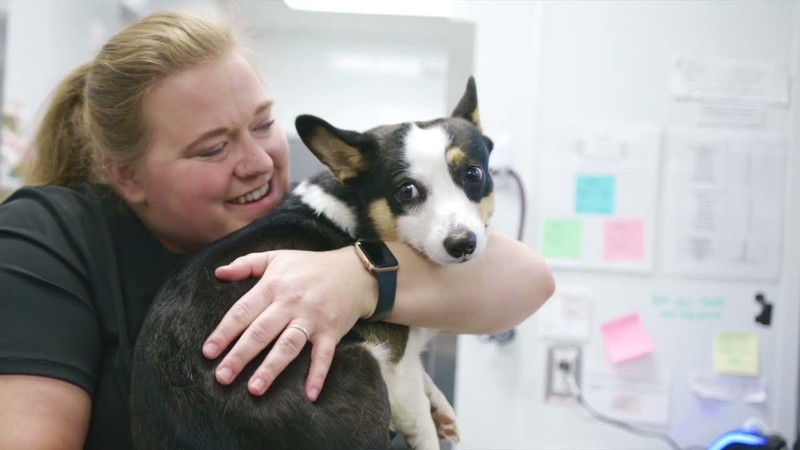As workplaces reevaluate their policies amid changing employee expectations, Sir Martin Sorrell, CEO of S4 Capital, advocates for pet-friendly offices. He believes that allowing pets can create an inviting and productive environment, encouraging employees to spend more time in the workplace. For Sorrell, integrating pets into office culture is about promoting connection and well-being, underscoring the recognized benefits of pet ownership for employee satisfaction and productivity.
Key Takeaways
Sir Martin Sorrell advocates for pet-friendly offices as a way to boost employee morale and productivity by creating an inviting and productive environment.
- Pet-friendly policies can encourage employees to spend more time in the office, fostering genuine interpersonal connections that support effective teamwork.
- Allowing pets in the workplace can reduce stress levels, promote overall job satisfaction, and happiness, making employees feel more at ease and valued.
- By implementing pet-friendly policies, companies can create a work culture that addresses modern challenges, acknowledges evolving employee expectations, and supports business growth and wealth creation.
Boosting office attendance with pet-friendly policies
As more employees continue to work from home at least part of the week, Sorrell has voiced concerns over the impact of remote work on productivity and team cohesion. He views in-person work as essential for fostering genuine interpersonal connections that support effective teamwork.
In his experience, bringing his dog Ferus, a red setter, to S4 Capital’s London headquarters has enhanced his sense of well-being and comfort in the office. He suggests that pet-friendly policies could make in-office attendance more appealing, addressing employee reluctance to return full-time. “I’d rather people brought animals in than we were three days a week,” he remarked, signaling his belief that pets can bring a sense of joy and relaxation that makes the office environment more inviting and enjoyable.
By allowing employees to bring their pets, Sorrell believes that companies can create a positive and comfortable office culture that reinforces in-person attendance. Instead of imposing rigid attendance rules, a pet-friendly policy can encourage employees to naturally engage more in the workplace. In doing so, organizations can retain the benefits of in-person dynamics, which, according to Sorrell, are essential for productivity and collaboration.
How pets reduce workplace stress
Studies have shown that pet ownership can have numerous benefits for physical and mental health, including lowering stress levels and reducing blood pressure. Bringing these benefits into the office setting could further enhance the work environment, making employees feel more at ease and valued. Sorrell points to the natural boost in morale and reduction in stress that pets can provide, creating a more relaxed atmosphere that is conducive to productivity.
Pets in the workplace are not just about reducing stress but are also about promoting overall job satisfaction and happiness. For many employees, returning to the office can feel daunting after experiencing the flexibility and comfort of working from home.
Pet-friendly offices can bridge this gap by adding elements of home life to the workspace, thereby easing the transition. This added comfort may help retain top talent by creating a workplace that values employee well-being and accommodates personal needs, thereby enhancing loyalty and commitment.
A strategic solution for modern workplace challenges
Sorrell’s support for pet-friendly offices underscores a broader trend in which companies are increasingly focusing on employee well-being and satisfaction as a strategic advantage.
In the past, perks such as gym memberships, relaxation rooms, and on-site dining were seen as attractive benefits, but the emphasis has now shifted toward mental health and personal fulfillment. By implementing pet-friendly policies, companies can create a work culture that addresses modern challenges and acknowledges the evolving expectations of the workforce.
Beyond creating a positive work atmosphere, pet-friendly policies also contribute to team bonding. Research indicates that pets can catalyze social interactions, prompting conversations and helping team members form stronger connections.
In Sorrell’s view, the presence of pets can encourage collaboration and spontaneous communication, two elements that are often lost in remote or hybrid work models. A pet-friendly policy, therefore, aligns with his belief that interpersonal connections are essential to productive team dynamics and can help employees feel more connected and engaged with their coworkers.
Pet ownership benefits for employee well-being
The psychological and emotional benefits of pets are well-documented, with numerous studies illustrating how pet ownership can reduce loneliness, anxiety, and depression. For employees who are hesitant to return to the office, a pet-friendly environment may provide reassurance that their needs are being acknowledged and respected.
The presence of pets in the office can help ease the anxiety associated with being away from home, particularly for pet owners who worry about leaving their pets alone for extended periods. For Sorrell, embracing pet-friendly policies is a practical approach to prioritizing mental health in the workplace, supporting employee well-being, and encouraging a positive outlook on in-office attendance.
By encouraging pet ownership benefits in the office, Sorrell sees the opportunity for businesses to create a corporate culture that is not only productive but also compassionate. In a time when employee mental health and work-life balance are top priorities, creating a pet-friendly office may be one of the most effective ways to foster a supportive and inclusive work environment.
This emphasis on well-being aligns with broader efforts to retain talent and adapt to the preferences of a workforce that increasingly values flexibility and personal fulfillment.
Addressing team dynamics and economic concerns
While Sorrell is enthusiastic about pet-friendly policies, he also remains critical of remote work’s effect on productivity and team cohesion. Concerns about remote work’s impact on productivity and team cohesion have become increasingly prominent.
Many business leaders argue that remote setups hinder strong team dynamics, which are crucial for high performance. The lack of face-to-face interaction can weaken relationships among team members, potentially leading to declines in motivation and productivity. Advocating for in-office attendance, leaders emphasize the importance of fostering collaboration and accountability. A pet-friendly office environment can help create a welcoming atmosphere that encourages employees to engage more fully in their work.
In addition to workplace dynamics, potential tax increases proposed by the Labour Government raise alarms about talent retention in the UK. High taxes may deter wealth creation, prompting businesses and skilled individuals to consider relocating abroad.
Historical trends show that elevated tax rates have previously driven talent away, underscoring the need for a balanced approach that supports both revenue generation and a business-friendly climate. Addressing these challenges is essential for maintaining a competitive edge and fostering economic growth.
Economic challenges and workplace trends
In navigating these economic challenges, Sorrell also advocates for policies that support business growth and wealth creation. He argues that, without a balanced tax approach, the Labour government’s proposals may discourage investment and innovation.
This position underscores his broader approach to leadership, which combines a focus on employee well-being with an understanding of the economic factors that influence business success. For Sorrell, creating a pet-friendly, inviting workplace aligns with his belief in fostering a productive environment that meets both the personal and professional needs of employees.
Pet-friendly workplaces: Redefining corporate culture
Advocating for pet-friendly policies reflects a commitment to a holistic workplace culture. Allowing employees to bring pets to the office creates a welcoming environment where they feel valued and supported. This approach fosters loyalty, engagement, and motivation—key elements for long-term productivity and success. A pet-friendly workplace not only encourages in-office attendance but also builds a resilient and adaptable corporate culture.
As organizations increasingly recognize the pet ownership benefits for employee morale, pet-friendly offices are becoming a hallmark of innovative companies. Sorrell’s focus on creating enjoyable work environments reflects the evolving nature of workplaces in employees’ lives. He believes that by balancing productivity-focused policies with well-being initiatives, companies can meet the demands of the modern workforce.
Sorrell’s advocacy for pet-friendly policies offers a pathway for companies to strengthen connections with employees, adapting to their preferences while ensuring productivity and collaboration. As businesses seek new ways to attract and retain talent, his emphasis on pet ownership benefits underscores the importance of fostering workplaces that support both professional and personal needs.















